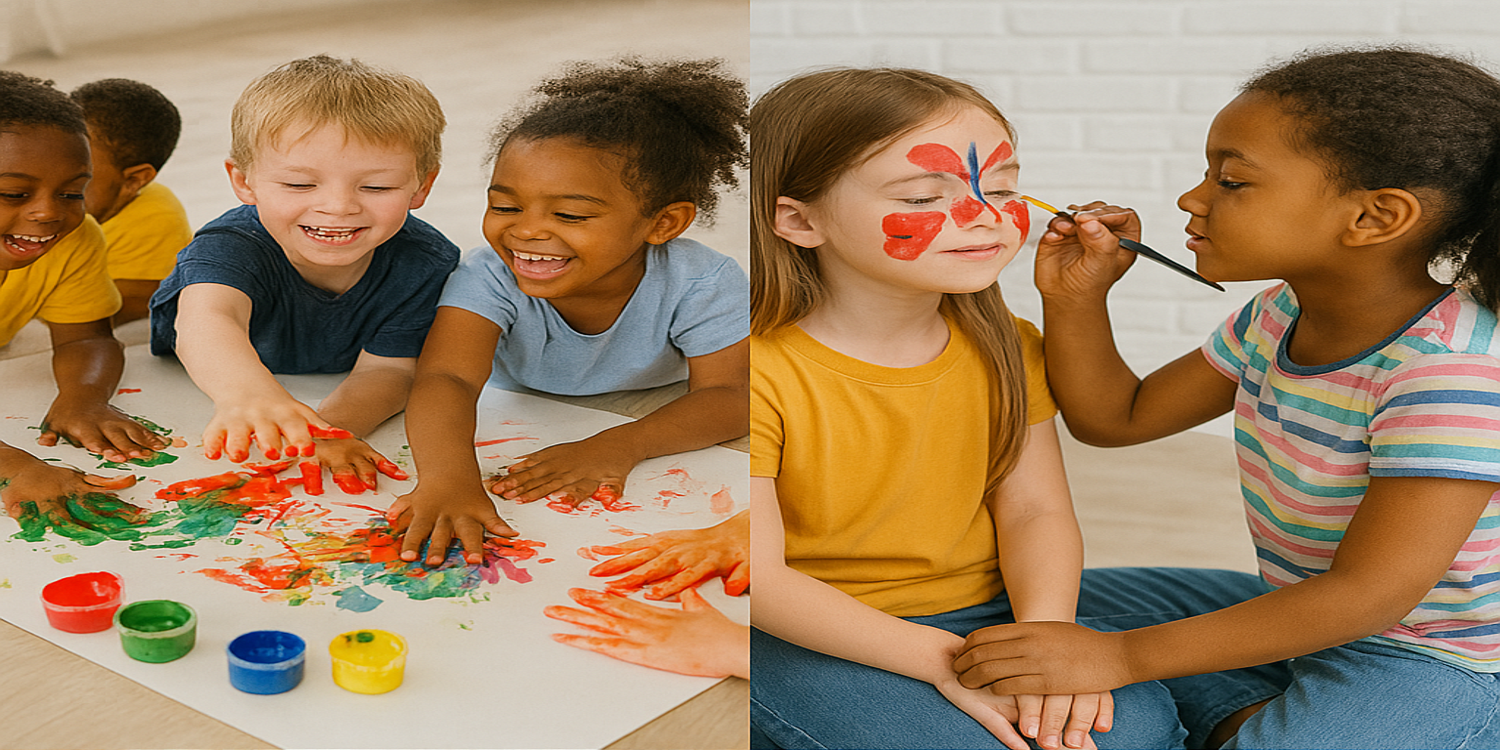Let Them Play

How Free Play Fuels Your Child’s Growth
Introduction
When was the last time your child turned a cardboard box into a race car, climbed a tree just for fun, or spent an afternoon mastering a tricycle? These simple moments are filled with incredible developmental value. In our rush to schedule activities and prepare our young ones for the future, we may be overlooking one of childhood’s most essential ingredients: free play.
In the GREATEST Roadmap to purposeful parenting, Enjoyment is about helping children find joy in learning, exploring, and simply being. Free play is one of the most natural and powerful ways to foster that joy—and yet, it’s increasingly at risk of disappearing. More importantly, it’s a key driver of early growth and development.
What Free Play Looks Like
Free play is an unstructured, child-directed activity where imagination leads the way. It might look like a toddler making mud pies, a preschooler scaling a backyard tree, or a kindergartener pedaling furiously down the sidewalk. There are no rules, no goals—just pure, child-led discovery.
Take little Maria, for example. At three, her days were packed with toddler gymnastics, music classes, and flashcard drills. Although she was reaching developmental milestones early, her parents noticed she was often irritable, clingy, and uneasy in social settings.
After consulting a child development specialist, they made some changes—fewer formal activities, less screen time, and more outdoor free play. Maria soon discovered the joy of climbing the backyard tree and learning to ride her tricycle. With each scraped knee and triumphant smile, her confidence grew. She played independently for longer stretches, became more relaxed, chatted with children in the park, and started inventing stories with newfound enthusiasm.
Why Free Play Matters
Free play isn't just a break from structure—it’s a cornerstone of development. Through imaginative, open-ended play, children learn to:
- Think critically
- Regulate emotions
- Solve problems
- Explore physical limits
- Build social skills
A landmark study by Dr. Kenneth Ginsburg (2007), published by the American Academy of Pediatrics, affirms this: free play is essential for cognitive, physical, social, and emotional well-being. Without it, children may experience higher anxiety, reduced creativity, and delays in developing critical life skills.
Yet today’s children often face:
- Overscheduling with highly early academics
- Screens replacing hands-on exploration
- Parental fears limiting outdoor adventures
- Pressure to perform replacing time to play
When free play is squeezed out, the natural rhythm of learning and development is disrupted.
How to Support Free Play With Your Child
You don’t have to toss your routines. Just make intentional room for play. Here’s how:
🧸 Design a Play-Friendly Space
Offer simple, open-ended toys like blocks, costumes, art supplies, and pretend kitchens.
🕒 Schedule Downtime
Allow at least 30 minutes of unscheduled, device-free time each day for free play.
📵 Limit Screen Time
Encourage real-world creativity by swapping screens for hands-on experiences.
😐 Welcome Boredom
Let your child get bored—boredom often sparks the most brilliant play ideas.
👣 Join—Then Step Back
Play alongside them but let them lead.
Encouragement for Parents
It’s okay if your home is a little messy or your child isn’t always “productive.” Growth happens in cardboard castles, backyard gardens, sandy beaches, and muddy puddles.
You’re not failing. Learning, development, and joy all bloom through play. Play is your child’s work—and direct their growth.
🔍 Reflective Prompt:
Joyfully interact with your child this week through unstructured play. Let them take the lead—you’ll both grow.
Conclusion
Free play is not just fun—it’s foundational. By prioritizing unstructured, joyful play, you’re nurturing your child’s development and preserving the magic of childhood. As part of the GREATEST Roadmap, encouraging Enjoyment through free play empowers your child to grow with curiosity, confidence, and joy.
📚 Reference
Ginsburg, K. R. (2007). The importance of play in promoting healthy child development and maintaining strong parent-child bonds. Pediatrics, 119(1), 182–191. https://doi.org/10.1542/peds.2006-2697